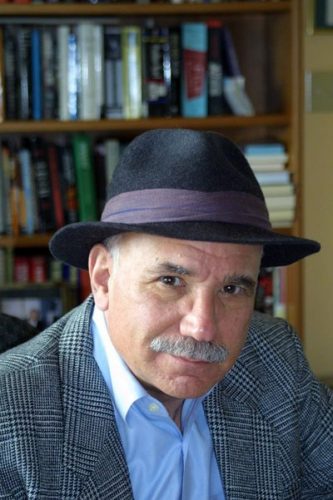
As a peer of the journalists infamously executed in online videos recently distributed by ISIS, the horror of that footage felt particularly real to Reese Erlich. Erlich, a longtime Middle East correspondent for NPR, recently returned from Syria and will speak in Eugene Nov. 19 and 20 about his on-the-ground account of the ascendance of ISIS (the Islamic State) and the United States’ effort to halt it.
Erlich sees an illogical, destructive “third war” coming to a head in the U.S.’s escalating response to ISIS.
“I feel personally quite upset — that could have been me as a freelancer,” Erlich tells EW. “There’s no excuse for carrying out that kind of activity.” But, he adds, “The U.S. claims that it’s trying to stop the Islamic State with this bombing and the new military offensive. In fact, it’s going to help them, because they’re now claiming to be the great fighters against U.S. imperialism and it’s actually helping their recruitment efforts.”
Though ISIS first came to the attention of American journalists in the wake of the execution videos, Erlich says that ISIS has been very well known in the region for several years — “a massive intelligence failure by the U.S.”
While American media waits to confirm reports that ISIS leader Abu Bakr al-Baghdadi has been killed in Iraq, Erlich says that we have to re-examine the way we consume news about the conflict. The current flow of information, he says, which originates in the U.S. or Iraqi military, is practically impossible for media to confirm because of safety concerns.
“So you’re completely reliant on those in power,” Erlich says. “And in a day or two or three, if it turns out that he wasn’t killed, then there’s a small article written about that in the back pages. Whenever you see any accounts of heroic victories by the U.S. and its allies, you take it with a grain of salt.”
On Nov. 19, Erlich will speak at 12:30 pm at the UO Law School, Room 175, and at 7 pm at Tsunami Books. At 2 pm Nov. 20, he will speak at Lane Community College. Expect him to explain his position on the U.S.’s role in the region, which would include no intervention at all, and to talk about his conversation with Syrian President Bashar al-Assad, who Erlich describes as “a little stiff, but generally friendly.”